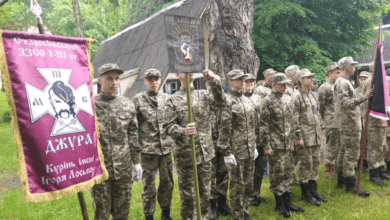Ukrainian children in Poland refuse to study in local schools

The educational process for the children of Ukrainian refugees in Poland remains problematic, even despite the incentives introduced by the government in the form of “800 plus” aid, which can only be received by those who attend Polish schools. However, with the beginning of the new academic year, the number of students who went to classes did not meet the expectations of local authorities. The question remains open: why are Ukrainian children in no hurry to enroll in Polish educational institutions, despite the risk of losing financial support?
According to the data of the Polish authorities, in many regions of the country there is uncertainty regarding the number of Ukrainian children in schools. Directorates of many institutions do not have a complete picture of the real number of students who will attend classes. Some parents prefer distance learning in Ukrainian schools, which allows them to keep in touch with their native education system. Others, it seems, are not going to introduce their children to a new cultural environment at all.
Low motivation to attend schools: causes and consequences
One of the main reasons why children refuse to attend Polish schools is integration difficulties. According to Ukrainian parents, their children often face cultural barriers and discrimination, which makes adaptation difficult. In addition, the lack of proper support for learning the Polish language also makes the learning process stressful and ineffective for many students.
Some schools try to solve the problem with Polish language courses, but these efforts are often not enough to make children feel comfortable in a new environment. Teachers emphasize that some children, even if they are formally enrolled in school, do not actually attend classes. Such situations further complicate the work of educational institutions and create additional questions regarding the effectiveness of the integration policy.
Distance learning as an alternative
The popularity of distance education for Ukrainian refugees in Poland is growing. Thanks to online classes in Ukrainian schools, children have the opportunity to continue their studies according to their native curriculum, without losing contact with the Ukrainian education system. This form of education also allows for stability in a period when many families live in uncertain conditions and do not know when they will have to return home or look for new places to live.
However, distance learning has its limitations. Despite the opportunity to receive an education online, children cannot fully integrate into the social life that school provides. In addition, parents who decide to leave their children for distance learning risk losing financial support that could facilitate their life in Poland.
Declining payouts and churn trends
As of 2024, the Polish government notes a decrease in the number of payments under the “800 plus” program for foreigners. In the first six months, the number of recipients decreased by 8.9% compared to the same period in previous years. This may be related to both the general outflow of Ukrainian families from Poland and the growing popularity of distance learning.
Some families return to Ukraine, others move to Western Europe, trying to find better living conditions. However, despite this outflow, new families from Ukraine continue to arrive in Poland, in particular with teenagers who are saved from the draft.
Integration as a key challenge
According to experts, the main problem lies not only in financial support, but also in the process of integrating Ukrainian children into the Polish educational system. The lack of adequate language and social support greatly complicates their adaptation process, which forces some children to simply avoid attending school. However, for successful integration, more efforts are needed on the part of both Polish and Ukrainian educational institutions.
It is worth noting that the successful integration of Ukrainian schoolchildren can become a key factor for their successful future. Therefore, Polish schools, together with international organizations such as UNICEF, should continue to work on creating comfortable conditions for the education and socialization of refugee children.
The situation with Ukrainian children in Poland demonstrates the difficulty of adapting to new conditions and requirements. Although the “800 plus” program should encourage them to attend schools, in practice many families face difficulties that complicate this process. To solve this problem, it is necessary to increase support for the integration of Ukrainian children into Polish society, providing them not only with financial incentives, but also with the necessary social and linguistic assistance.





